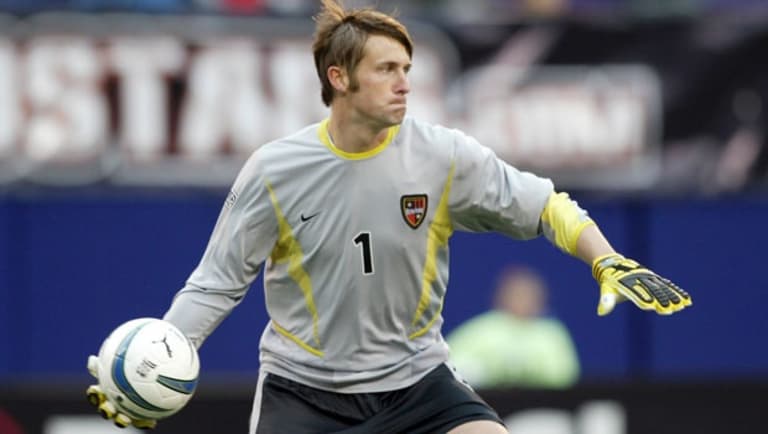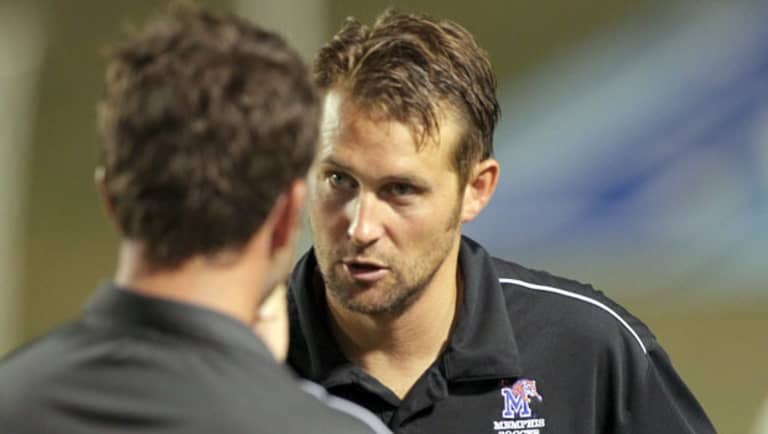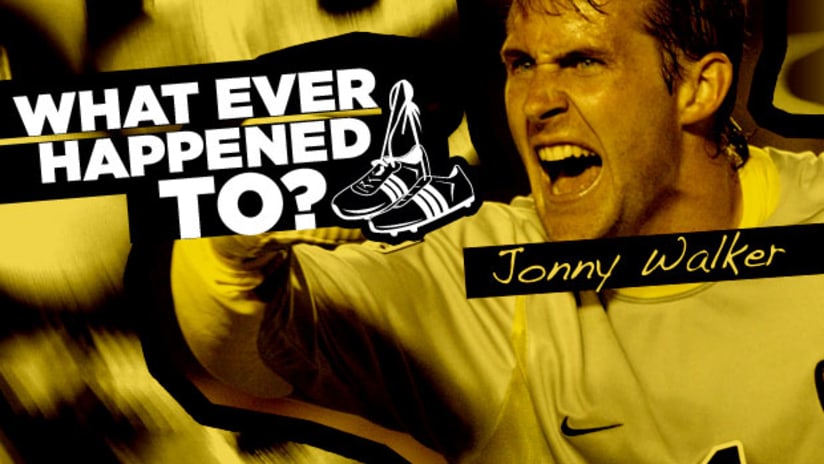MLSsoccer.com continues its look back at the stars, personalities and cult heroes who made Major League Soccer what it is today. Our second annual “What Ever Happened To..." series rolls on with Jonny Walker, the goalkeeper with the name fans remembered and the first American to be a star in South America.
Where He Was Then
There was no Project-40 or Generation adidas program in 1996 when Walker decided to leave the University of Louisville after one year to go pro. But getting drafted by Dallas in 1996 wasn’t all it was cracked up to be. He wasn’t getting much playing time and he was being asked to take a developmental salary.
Before long, he was playing minor league soccer in Jacksonville, Fla., where he spotted one of his assistant coaches, a Chilean native, flipping through a Don Balón soccer magazine from his native country. Walker knew where he was headed next.
“He showed me a magazine and I was like, ‘That’s where I’m going,’” Walker recalls. “At the time, it made a lot of sense.”
That decision turned into six years in Chile, where he became the first American to succeed in a South American country. Walker settled into the culture, learned the language and reached immovable starter status, first at Universidad Católica of Santiago and then at their legendary cross-town rivals, Colo-Colo. Clubs like Argentinos Juniors and Real Valladolid in Spain came close to signing him during that time.

But despite the success, the Colo-Colo No. 1 opted for a return to the US in mid-2003. The MetroStars brought him in as a replacement for Tim Howard, who had left for Manchester United.
And it was at Giants Stadium where Walker became a fan favorite in goal. Supporters produced T-shirts in his honor that were stylized after the Scottish whiskey brand that shares his name.
Things continued to go well when he was traded to Columbus in midseason of 2005, and he quickly won the favor of Sigi Schmid, who was named head coach not long after he arrived. Then came the back injury that changed everything.
During an offseason workout, Walker lunged to kick a ball that had taken a bad bounce, and suffered an anular tear in his back and multiple herniated discs. He waited nearly a year for his back to heal, but it never did. It dictated another course in his life.
Where He Is Now
“Hello, thank you for choosing American Express. My name is Jon. How may I assist you?”
That’s how Walker greeted callers as an American Express card-member services representative in 2008, working out of his home in Memphis, Tenn., nearly three years after his professional career ended prematurely.
“You have an issue? You got double-billed? Or you need a credit balance refund? Want me to cut you a check? That was me,” Walker says. “You have to be talented to be able to do that, don’t you? That just goes to show, one day you’re playing in front of 70,000 people and the next day there you are answering phones for American Express.”
That job was an achievement in itself and a long way for where he found himself when he was forced to announce his retirement due to injury in January 2007.
“It’s that whole experience of tasting it all and all of a sudden, it’s exit stage left,” Walker laments of the premature end to his playing days. “And the door closes behind you and you’re not allowed to come back in.”
Confused and depressed, Walker listened to his wife’s advice and finished off his communications degree online at the University of Louisville.

“Then I was going to get into radio until I found out you had to work in a semi truck in the middle of nowhere making $18,000,” he says.
The economic downturn was in its early stages at the time, which led him to the position at American Express, where he worked for a little more than a year. But Walker could never get the bug out of his system and longed to return to the game. He started calling his contacts, and found an opportunity right in his backyard.
As it turned out, one of Walker's high school teammates, Brooks Monaghan, was the head coach of the women's team at the University of Memphis. Walker got in touch and and landed a job as goalkeeper coach under Monaghan in 2009. He’s since been elevated to assistant coach and he’s played a major role in the program’s ascent to No. 9 in the country.
“Nothing but fun in Memphis,” the 37-year-old Walker reports. “[I’m in my] third year and loving it. Had you told me 10 years ago that I’d be doing this, I’d have probably said you’re crazy. But I absolutely love it. It’s wonderful.”
Walker has been able to get back on his feet. Although he deals with back pain at least once a month – “pretty excruciating stuff” – he’s thankful for the life he enjoys with his wife and two kids. He hopes that sharing his post-playing experiences will help current players think ahead and maybe even move the Players Union or the league into setting up a committee to help the transition from professional soccer.
“A lot of players experience it, maybe not in such a dramatic way like me, but it’s one of those things you’d have liked to have someone to bounce things off of and someone who’ll tell you it’s all going to work out,” he says. “I’ve already talked to a couple of my friends wrapping up MLS careers and they’re like, ‘Jon, what do I do now? I’ve got kids?’ You can’t just cut them off cold turkey. It’s got to be better than that.
“If you go from the weekends you’re playing in front of a lot of people and the checks are coming in, to all of a sudden there’s nothing, that’s a scary place to be in.”
What They Said
“Unfortunately he got injured with the back injury and wasn’t really able to play for me. But as a personality, I thought he was great. He was very humorous, but when he was able to play, he worked very hard. He was very competitive and I liked all those aspects about him.”
– Sigi Schmid, Walker’s last head coach in Columbus














